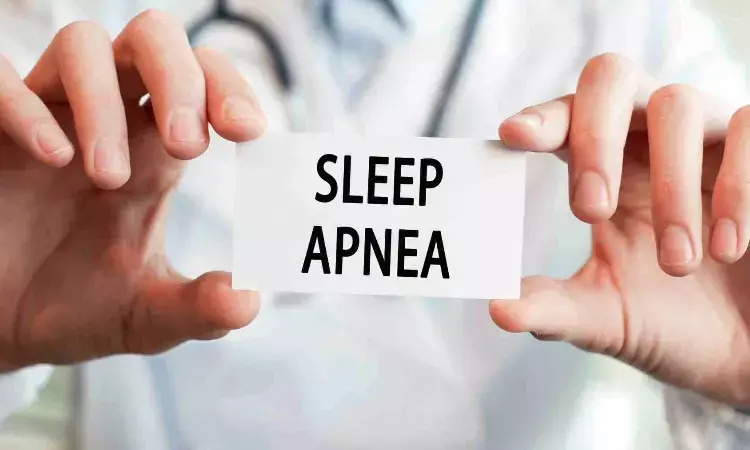- Home
- Medical news & Guidelines
- Anesthesiology
- Cardiology and CTVS
- Critical Care
- Dentistry
- Dermatology
- Diabetes and Endocrinology
- ENT
- Gastroenterology
- Medicine
- Nephrology
- Neurology
- Obstretics-Gynaecology
- Oncology
- Ophthalmology
- Orthopaedics
- Pediatrics-Neonatology
- Psychiatry
- Pulmonology
- Radiology
- Surgery
- Urology
- Laboratory Medicine
- Diet
- Nursing
- Paramedical
- Physiotherapy
- Health news
- Fact Check
- Bone Health Fact Check
- Brain Health Fact Check
- Cancer Related Fact Check
- Child Care Fact Check
- Dental and oral health fact check
- Diabetes and metabolic health fact check
- Diet and Nutrition Fact Check
- Eye and ENT Care Fact Check
- Fitness fact check
- Gut health fact check
- Heart health fact check
- Kidney health fact check
- Medical education fact check
- Men's health fact check
- Respiratory fact check
- Skin and hair care fact check
- Vaccine and Immunization fact check
- Women's health fact check
- AYUSH
- State News
- Andaman and Nicobar Islands
- Andhra Pradesh
- Arunachal Pradesh
- Assam
- Bihar
- Chandigarh
- Chattisgarh
- Dadra and Nagar Haveli
- Daman and Diu
- Delhi
- Goa
- Gujarat
- Haryana
- Himachal Pradesh
- Jammu & Kashmir
- Jharkhand
- Karnataka
- Kerala
- Ladakh
- Lakshadweep
- Madhya Pradesh
- Maharashtra
- Manipur
- Meghalaya
- Mizoram
- Nagaland
- Odisha
- Puducherry
- Punjab
- Rajasthan
- Sikkim
- Tamil Nadu
- Telangana
- Tripura
- Uttar Pradesh
- Uttrakhand
- West Bengal
- Medical Education
- Industry
Sleep apnea linked to memory and thinking problems, reveals study

People who experience sleep apnea may be more likely to also have memory or thinking problems, according to a preliminary study released today, March 3, 2024, that will be presented at the American Academy of Neurology’s 76th Annual Meeting taking place April 13-18, 2024, in person in Denver and online. The study shows a positive association but did not determine whether sleep apnea causes cognitive decline.
Sleep apnea is when people stop and restart breathing repeatedly during sleep which can lower oxygen levels in the blood. Symptoms include snorting, gasping and breathing pauses. People with the disorder may also experience morning headaches or have trouble focusing on tasks.
“Sleep apnea is a common disorder that is often underdiagnosed, yet treatments are available,” said study author Dominique Low, MD, MPH, of Boston Medical Center in Massachusetts, and a member of the American Academy of Neurology. “Our study found participants who had sleep apnea symptoms had greater odds of having memory or thinking problems.”
The study involved 4,257 people. Participants completed a questionnaire asking about sleep quality as well as memory and thinking problems. For sleep, participants were asked about snorting, gasping or breathing pauses in their sleep. For memory and thinking, participants were asked questions related to difficulty remembering, periods of confusion, difficulty concentrating or problems with decision making.
Of all participants, 1,079 reported symptoms of sleep apnea. Of those with symptoms, 357 people, or 33%, reported memory or thinking problems compared to 628 people, or 20% of people without sleep apnea symptoms.
After adjusting for other factors that could affect memory and thinking problems, such as age, race, gender and education, researchers found that people who reported sleep apnea symptoms were about 50% more likely to also report having memory or thinking problems compared to people who did not have sleep apnea symptoms.
“These findings highlight the importance of early screening for sleep apnea,” said Low. “Effective treatments like continuous positive airway pressure (CPAP) machines are readily available. Quality sleep, along with eating a healthy diet, regular exercise, social engagement and cognitive stimulation, may ultimately reduce a person’s risk of thinking and memory problems, improving their quality of life.”
Reference:
Sleep apnea symptoms linked to memory and thinking problems, American Academy of Neurology, Meeting: 2024 American Academy of Neurology’s 76th Annual Meeting.
Dr Kamal Kant Kohli-MBBS, DTCD- a chest specialist with more than 30 years of practice and a flair for writing clinical articles, Dr Kamal Kant Kohli joined Medical Dialogues as a Chief Editor of Medical News. Besides writing articles, as an editor, he proofreads and verifies all the medical content published on Medical Dialogues including those coming from journals, studies,medical conferences,guidelines etc. Email: drkohli@medicaldialogues.in. Contact no. 011-43720751


